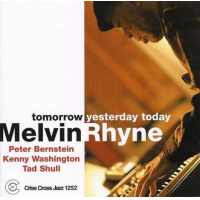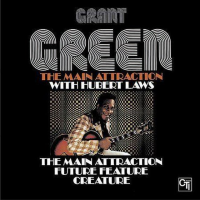Home » Jazz Articles » Liner Notes » Fela Kuti: Army Arrangement
Fela Kuti: Army Arrangement
It came about like this... In November 1984, Fela was sentenced to two five-year prison sentences on a charge of attempting to smuggle £1,500 in cash out of Nigeria on a flight to New York. The charge was trumped up, as the customs officials who had been party to it later revealed, and a year later Fela was declared a "prisoner of conscience" by Amnesty International. He was released after serving 18 months, following the presiding judge's confession that Nigeria's military regime had pressured him into passing a severe sentence.
When Fela was jailed, Army Arrangement was awaiting release by the Paris-based Celluloid label, who had made a deal to re-release some of Fela's back catalogue along with the new album. Believing that the tapes needed further attention, Celluloid first asked Dennis Bovell to do a remix. Because Bovell was unavailable immediately, house producer Bill Laswell was drafted in. Laswell was dismissive of the album. In an interview with Musician magazine, he was quoted as saying: "All of Fela's horn solos were abysmal (and) were erased...We mixed the LP in five minutes, as a favor...You can talk about Africa and fucking politics for days, but the fact is that [keyboard player Bernie Worrell and drummer Sly Dunbar, added by Laswell] are high-grade musicians and Fela's in jail."
Friends smuggled a tape of the Celluloid mix into jail for Fela to hear. Listening to it, he said to me later, was "worse than being in prison." In the US in 1986, Fela told Ear magazine: "I did not like [Laswell's version]. It's not my music, simple as that. I have a reason for everything I write in my music. I'm not writing for commercialism as such, I'm writing African music not only for myself but for the future generations, so that they can understand African music. What Bill Laswell has done is not African music the way I hear it." (At the time of the remix I was working for Celluloid and I resigned from the label in protest. But that is another story).
Laswell and Celluloid produced quantities of thrilling avant-funk and rock in the mid 1980s, but with Army Arrangement they displayed a US-centric cultural arrogance more usually found in mainstream record labels. Laswell's electro experiments with saxophonist Manu Dibango worked well on the 1985 Celluloid album Electric Africa. Laswell's mistake was to cut and paste them on to Army Arrangement. More happily, Laswell went on to work fruitfully with Fela's old friend, the British drummer Ginger Baker, on several albums, notably Baker's Horses & Trees (Celluloid, 1986).
Fortunately, the original version of Army Arrangement survived, and that is the one heard on this disc. The title track's lyric is astonishingly brave, even by Fela's standards, accusing Nigeria's recently retired president, General Obasanjo, still an extremely powerful man (he later returned as president), of direct complicity in the "disappearance" of millions of US dollars generated by oil exports.
"Army Arrangement" has extended, long-form lyrics of which the following two verses are indicative: "Two-point-eight-billion naira oil money is missing, dem set up inquiry, dem say money no lost-o, dem dabaru everybody, Supervisor Obasanjo dem say make him no talk-o, 'Money no lost,' dem shout again, inquiry come close-o..... The young Africans dem get two ears for head, dem get two eyes too, dem dey see the thing wey dey happen, dem dey hear am too, few people dey fat with big money, and the rest dey hungry. Me, Fela, I challenge Obasanjo, na wayo him dey all the time, make him carry me go any court, I go open book for am, na wayo government we dey-o, egba mi o, na weak government we dey-o, ye paripa-o, na paddy paddy government we dey, egba mi-o."
In "Government Chicken Boy," heard here in a version which was first released in 2005, Fela sets his sights on lower-level government officers, who run around doing their masters' bidding unquestioningly. He also criticises those sections of the Nigerian media which uncritically repeat the official line.
Fela runs through a roll call of the accused before concluding: "Inside these offices see some people who dey work, some good people, and some bad people, the good people na wahala he be for dem, the bad people na dem dey do, an this is we dey call shaky-shaky." The chorus responds: "Shaky-shaky don catch dem, dem let make you dey look-o" (it is a big fight, "na wahala," for the good people to remain uncorrupted, while the bad people have "shaky-shaky," a fever which makes them tremble with fear when faced by their masters).
Liner Notes copyright © 2026 Chris May.
Army Arrangement can be purchased here.
Contact Chris May at All About Jazz.
Chris May is a senior editor of All About Jazz. He was previously the editor of the pioneering magazine Black Music & Jazz Review, and more recently editor of the style / culture / history magazine Jocks & Nerds.
Track Listing
Army Arrangement; Government Chicken Boy.
Personnel
Fela Kuti
saxophoneAdditional Instrumentation
Egypt 80 (various personnels).
Album information
Title: Army Arrangement | Year Released: 2021 | Record Label: Partisan / Knitting Factory
Tags
PREVIOUS / NEXT
Support All About Jazz
 All About Jazz has been a pillar of jazz since 1995, championing it as an art form and, more importantly, supporting the musicians who make it. Our enduring commitment has made "AAJ" one of the most culturally important websites of its kind, read by hundreds of thousands of fans, musicians and industry figures every month.
All About Jazz has been a pillar of jazz since 1995, championing it as an art form and, more importantly, supporting the musicians who make it. Our enduring commitment has made "AAJ" one of the most culturally important websites of its kind, read by hundreds of thousands of fans, musicians and industry figures every month.




















